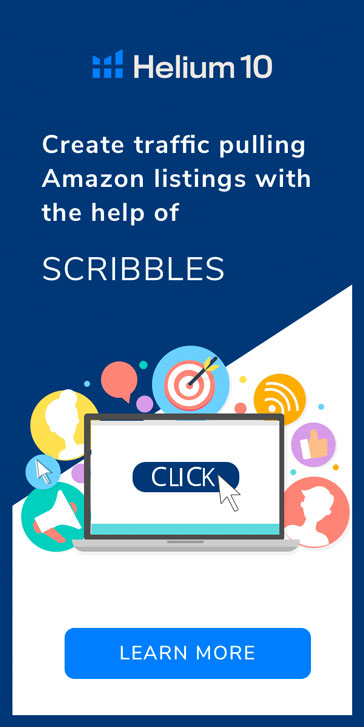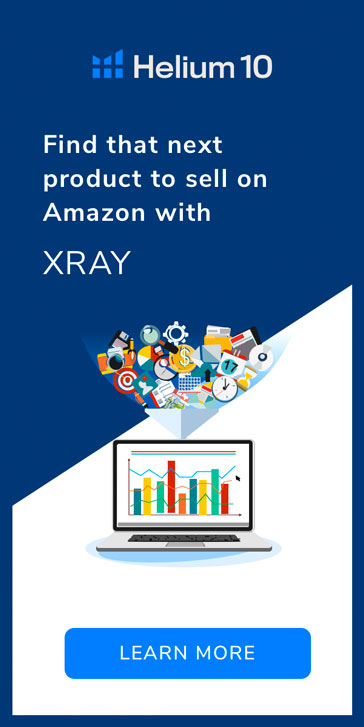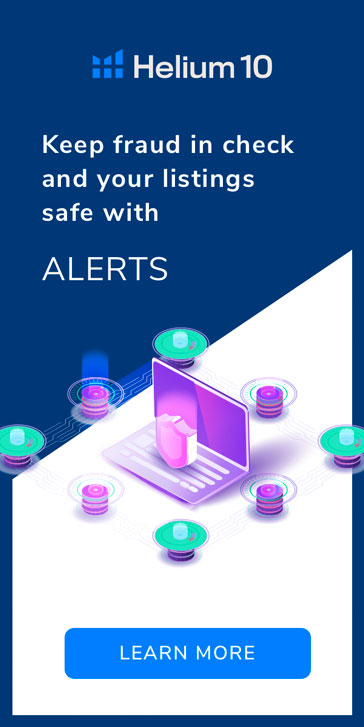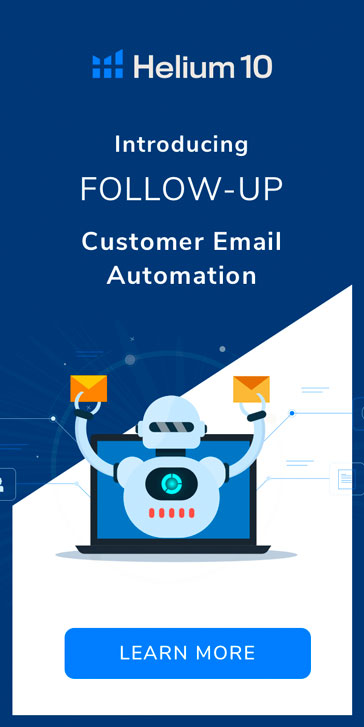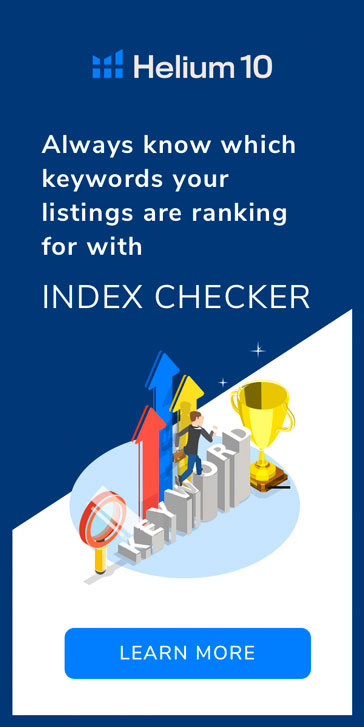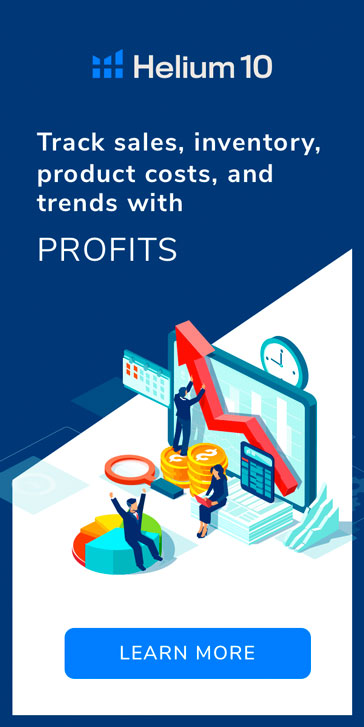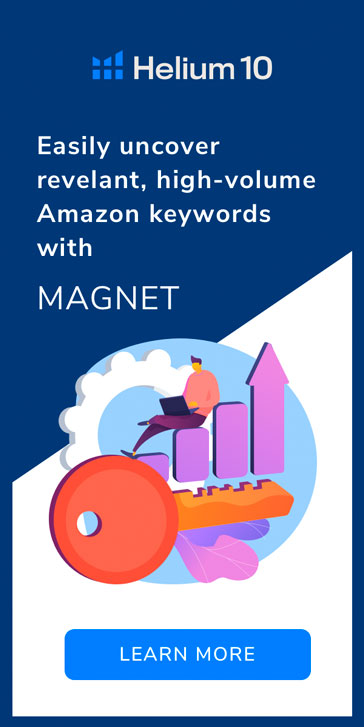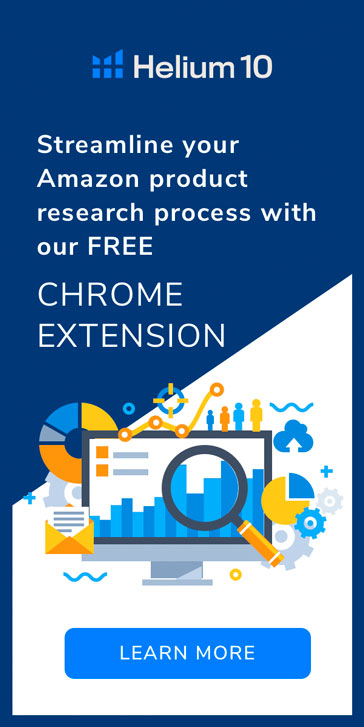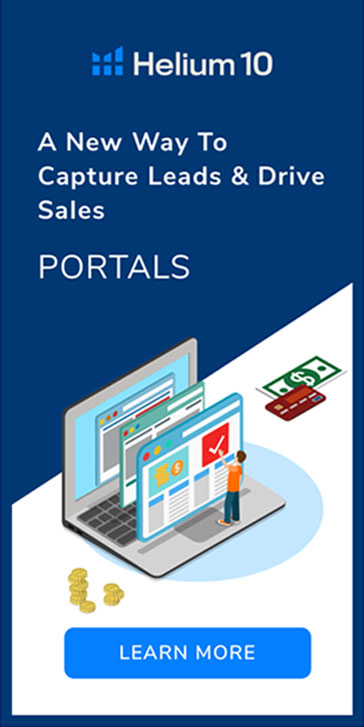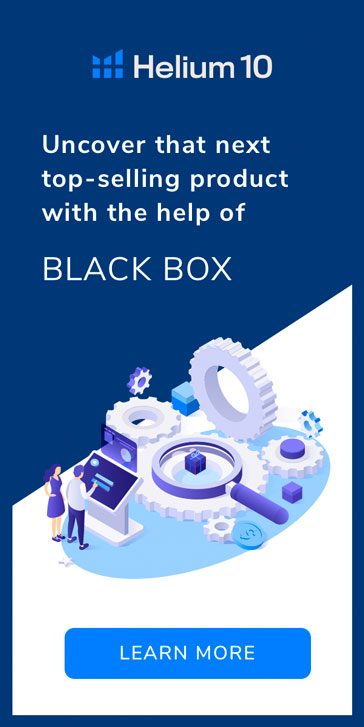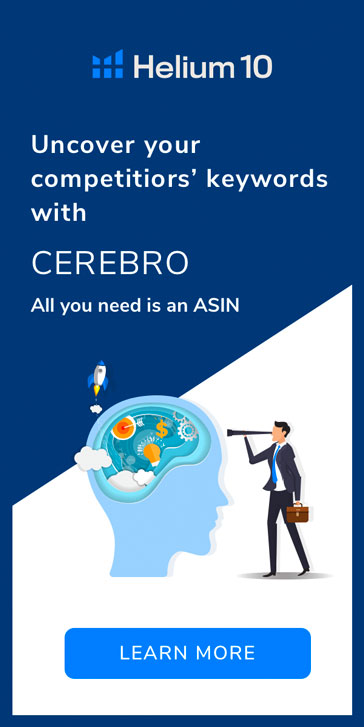Correctly launching a new product on Amazon can set your product up for a long and profitable lifespan. Advertising is a critical part of each launch. How do you do it quickly and efficiently? Automating keywords and bids as well as setting aside the right budget are all key parts we’ll cover in this post.
Pre-launch
It’s critical to set expectations before launching any campaigns. If your goal is to get to page 1 or 2 in a competitive niche, you may be looking at several hundred thousand dollars of ad spend. It’s important to figure out a good ballpark budget first so that the account is set up to succeed.
One way to do this is to work from estimated CVR, CPC and number of sales. Let’s say you want to hit 250 sales from advertising in the first month. How much should you expect to spend?
If it’s a brand new product, your conversion rate will likely be low until you have a competitive review count and star rating. Let’s use 2.5% for our estimated conversion rate.
Because this is a high competition niche, let’s say CPC is $5.
This equation gets you the Cost per Conversion:
CPC / CVR = Cost per Conversion
$5 / 2.5% = $200 Cost per Conversion
And the budget for these 250 sales =
Cost per Conversion * Target orders = Budget
$200 * 250 Sales = $50,000 budget
Note that we didn’t look at ACoS here. Ranking is about volume, not about profitability. In the research phase, it’s about getting the orders and not about ACoS.
Now that we understand what we’re up against, let’s go through the phases of launching a product with Amazon Advertising.
Three Campaign Structure
At Prestozon, we recommend a minimum structure consisting of three campaigns for most cases
- Auto
- Auto campaign searching for converting search terms at Amazon’s direction
- Research
- Manual campaign using broad or phrase keywords to search for converting search terms at the advertiser’s direction
- Performance
- Manual campaign using exact keywords to maximize control over converting search terms. A mature advertising initiative will have most traffic and sales going through this campaign.
Research
The research phase consists of starting all of the campaigns and systems to manage them.
We want to do research as quickly and efficiently as possible, so use a tool like Prestozon’s Keyword Rules to harvest converting search terms from the beginning. Rules search over the product’s auto and manual research campaigns and promote converting search terms into exact match keywords.
Optimize
Once search terms are isolated to your Performance campaigns, you can start to optimize them through bid. In the beginning, keep your ACoS targets high so that you win most of the auctions and drive as many orders as possible. It’s not uncommon to run 100-300% ACoS during this period.
Throughout all of this, it’s critical to remember that high performance PPC strategies require high performance listings. You can’t set a big budget on top of a bad listing and hope for profitable campaigns. The good news is that because you’re spending aggressively in the beginning you can quickly learn what search terms resonate with your customer base. You’re buying market research data through PPC! Use this to tune your title, bullets, listing text, and back end terms.
To get a list of search terms that resonate with your customers, go to Prestozon’s Search Term Explorer and add a filter for >2 orders. You can further filter this down by looking at high conversion rate terms, but that threshold will change per product. It may be 5% or it may be 15%, or in the beginning it may be 2%.
Scale
As you go up the ranks, get reviews, and tune your listing, your conversion rate should go up. It’s at this point you can set less aggressive ACoS targets and scale up your performance budgets as you scale down your research budgets.
Let’s say you started with $750/day budgets each for your auto and research campaigns and $100/day for your performance campaign. Initially, you’ll find new converting search terms rapidly. Over time, each additional search term takes longer and more money to find. As this happens, you should scale your research budgets down (perhaps as low as $20/day) and your performance budget up as high as you can while maintaining your ACoS.
Sometimes, ACoS doesn’t tell the whole story. For supplements and other continuity products looking at customer lifetime value (LTV) and understanding customer repurchase rates is key vs initial cost per acquisition (CPA). If you expect customers to purchase monthly for the next 6 months, a 60% ACoS for the first sale may come out to a 10% ACoS over the customer lifetime.
Overlapping phases
These phases aren’t executed purely in series. They overlap. The first search term that converts is likely to be both high volume and high conversion rate. You should start scaling that up right away! The research phase may go on for several months, as will the optimize phase. The scale phase will start as soon as week two and become the dominant mode of operation after 3-6 months and for the rest of the product’s lifecycle.
Launching with Prestozon’s 1 Click Campaign Setup in 10 Easy Steps:
Launching campaigns for a new product and scaling them up is easy to do with Prestozon’s 1-Click Setup. Here’s a step by step guide to get you started on the right foot:
- Enter the ASIN you are going to advertising. Note: Amazon requires ASINs for Vendors and SKUs for Sellers. Make sure you are entering the correct identifier!
- Enter your seed research terms. These are terms you think will help your product sell, but you’re not sure. It’s okay to put “maybe” keywords here.
- Enter your performance keywords. These are your known winners. Only put keywords in here if you have advertised these products or very similar products before and you know the keywords are winners and have driven sales for you.
- Set your budgets.
- Set your ACoS target and default bids. Remember, this is a launch, while you may want to drive ACoS down in the future, at first you want to drive for visibility and impressions. Keep the ACoS target high and make sure your default bid is competitive right from the start. If you find that you’re not getting enough impressions then increase your bid to ensure you’re getting enough impressions to generate clicks (ideally 20-30 clicks minimum).
- Check out your preview. The ad groups and keywords about to be created by the tool will appear in real time as you are filling out the parameters. You can use this preview to ensure your rules, naming conventions and ad groups are reflected accurately before you click “Create Structure”.
- Review your rules. If you want to make a change, there are other rule options under the Advanced Options in the bottom left. If you don’t see the option you want, you can do even more editing once you’ve created the rules.
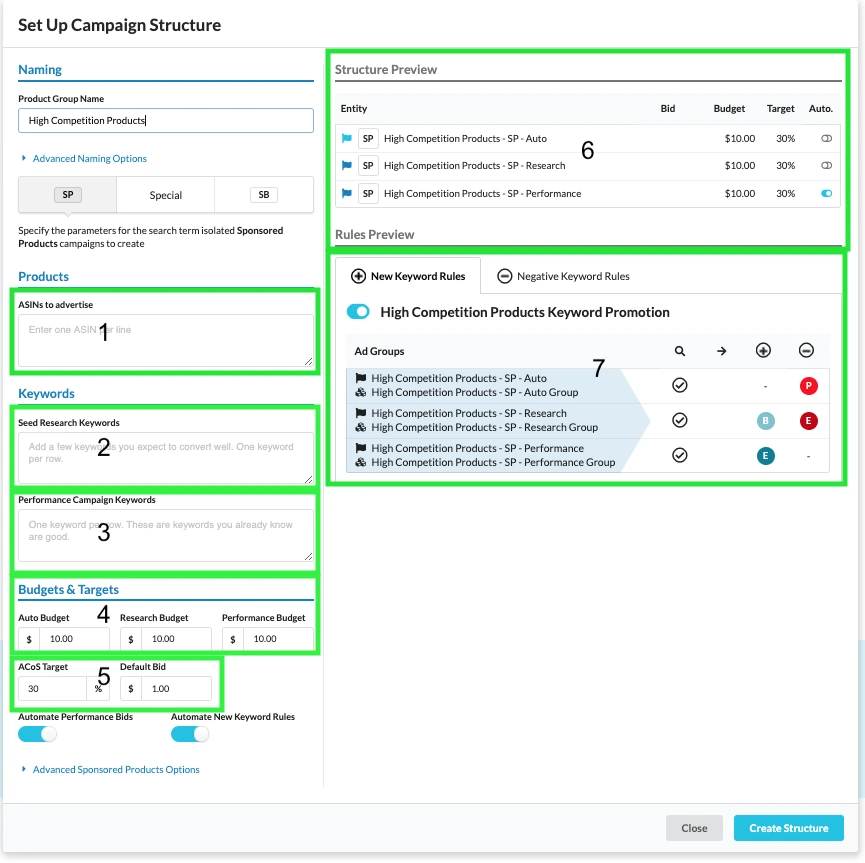
8) Branded terms often run significantly lower ACoS and higher conversion rate than non-branded terms. Prestozon allows you to put your brand terms in separate campaigns under the “Special” tab in the 1CS so you can manage these terms independently. This will allow you to manage budget on your branded terms separately and will give you better insight into both your branded and non-branded performance.
9) Set your ACoS and budget preferences for Branded campaigns. Your branded campaigns will almost always with a lower ACoS and higher conversion rate so we suggest more aggressive ACoS targets and higher budgets, even at launch. It’s common to see products with 30% ACoS on non-branded terms achieving lower than 5% ACoS on branded terms. Read more about breaking out branded search here.
10) Review your entire new launch structure. Complete with your SP non-branded campaigns and branded campaigns on the rules that govern them.
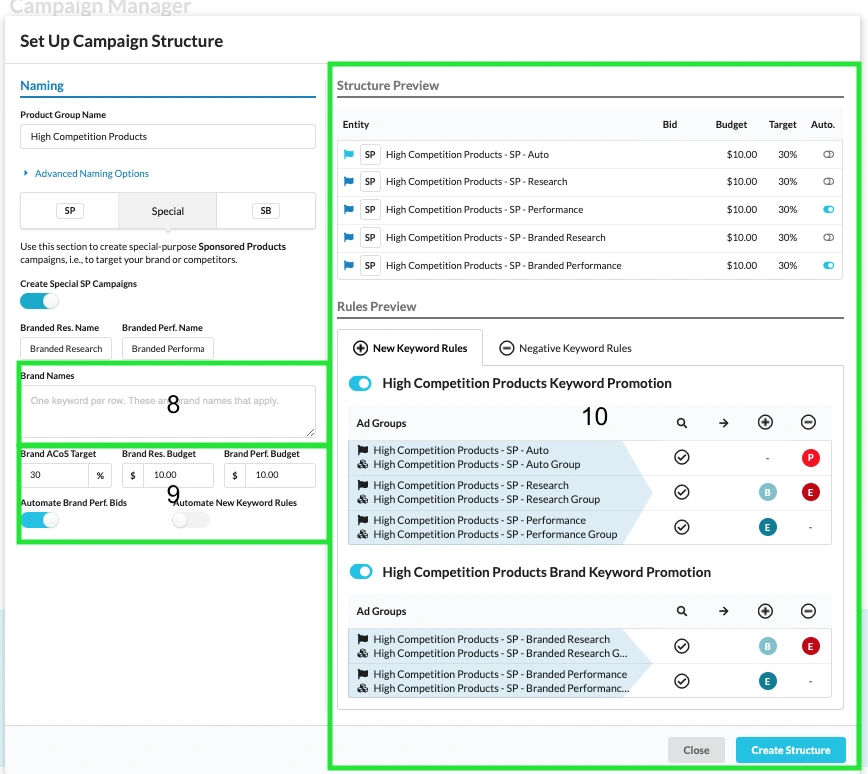
You’re all set! Now you’ve got a great campaign structure and have Prestozon set up to manage keywords and bids. Getting the most out of a product launch requires some judgement from the human account manager, so check in on your campaigns using Prestozon Analytics to get the last bit of performance out of them.
Original post from How to Launch into Competitive, High ACoS Markets – Helium 10












